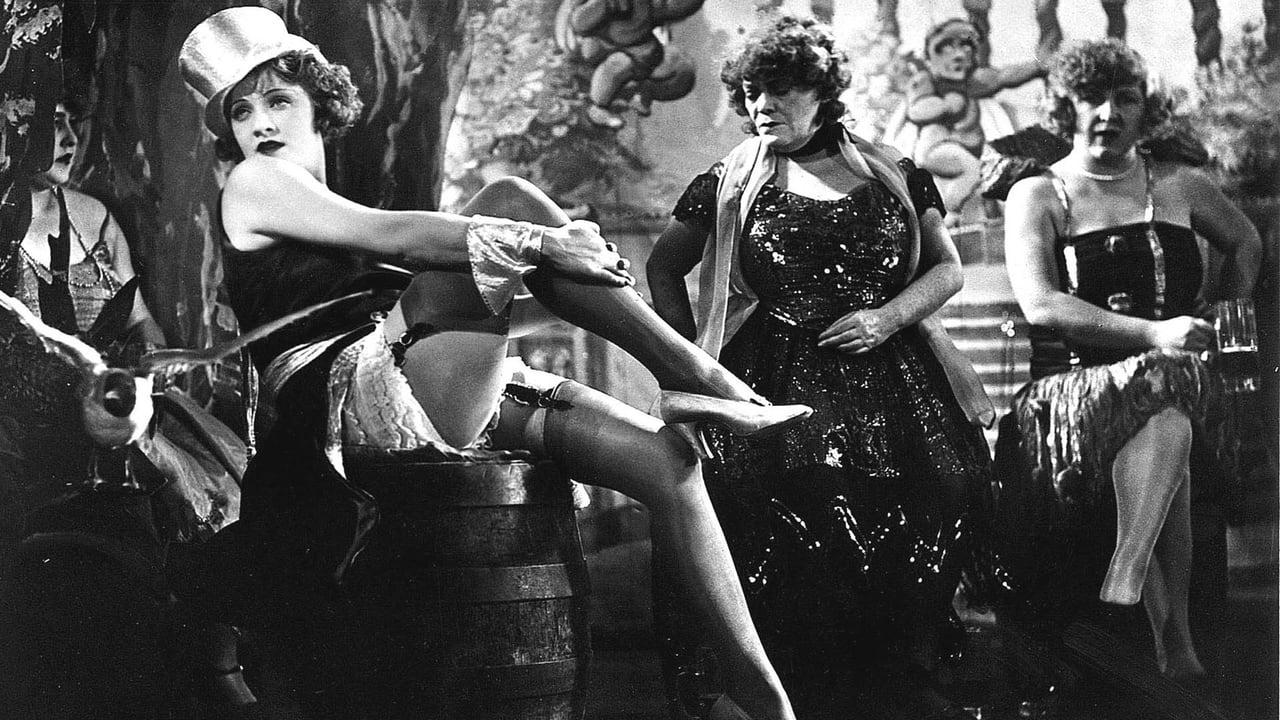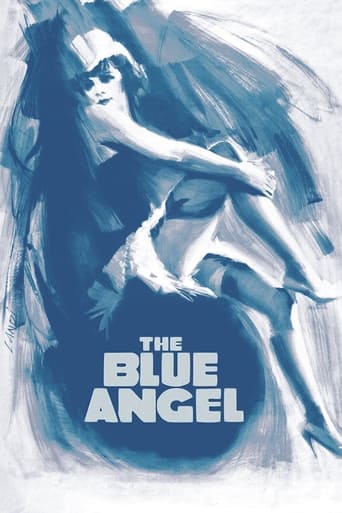



Lack of good storyline.
A Disappointing Continuation
Clever and entertaining enough to recommend even to members of the 1%
View MoreIt's simply great fun, a winsome film and an occasionally over-the-top luxury fantasy that never flags.
View MoreDespite Marlene Dietrich actually appearing in several silent films in her native Germany, it was 'The Blue Angel' that made her a star and rose her to international fame. It was also the film that started the famous and iconic 7-film collaboration of Dietrich and director Josef Von Sternberg.'The Blue Angel' may not be the best film of theirs, but is still very good and a knockout first collaboration for them. Of the German and English language versions, there is no doubt in my mind that the German version is the superior one being better paced and more natural. 'The Blue Angel's' only real drawback is to do with pacing, taking a little too long to get going and then later on parts feel rushed, abruptly introduced and not quite developed enough.Most memorable about 'The Blue Angel' is Dietrich on cruel and seductive form while singing her songs with sincerity, standing out especially being her iconic rendition of "Falling in Love Again" with her in a top hat and black stockings perched on the bar stool. Her character may not be likable but it's a complex one and Dietrich succeeds in making her real.It is easy to overlook Emil Jannings, in his first talking picture, however, the story of 'The Blue Angel' really being his, detailing of an enamoured man led to his downfall. It is a performance however underserving of overlooking, for it is a great performance full of wonderful moments (like his facial expression in the mirror and at the end), succeeding in making a real character in a way that's eccentric and poignant.Kurt Gerrer, who met a tragic end just over a decade later, is also good.Sternberg directs as sumptuously as to be expected and with adroit atmosphere. 'The Blue Angel' looks good, aside from occasional choppy editing, especially in the clever and luminous use of light and shadow lighting and cinematography that's atmospheric and classy. The music fits beautifully and enhances the mood, "Falling in Love Again" being a signature song of Dietrich's for very good reason.Further good things are a script that has a good balance of the comedic and the tragic, done amusingly and movingly, and a story that's disturbing and emotional, especially the heart-wrenching ending.Overall, very good film and more than just historical interest. 8/10 Bethany Cox
View MoreA dedicated and strict professor finds out that some his pupils are regular visitors of the famous night club. He himself goes there to check on the pupil. The unmarried professor's visit to the night club made a life changing turning point. The summary is how a female can put a man's life in tragedy. The movie has a smooth transition from silence through comedy to tragedy. The first talkie of Germany is well directed, photographer and played. This makes the movie a masterpiece and a must watch.#KiduMovie
View MoreSeems like director Von Sternberg had an axe to grind with men or the middle class. Emil Janning's Professor is staid and repressed but seems like a decent person and I don't know why he must be seen to lose it so much, if, as the director said, this was not a political allegory. That is either disingenuous or the Professor is not the stable person he seems the first 2/3 of the film. The only other explanation is that Von Sternberg sees Lola (the amazing Marlene Dietrich) as a very destructive person. I found this an overly melodramatic film which makes a cartoonish depiction of a middle-class German. The acting is fantastic from Dietrich and Jannings but I found this a baffling film. I had expected that the Professor would fall in love and they would have a more stable relationship, but their relationship falls apart when the Professor is completely irrational at the attention his wife is getting. While this isn't unreasonable, that he becomes SO unhinged seems really unlikely. I don't understand why his seemingly sweet wife and also someone who seemed deeply in love with him turns away from him so quickly. If Von Sternberg wanted to make that storyline, they should have made the Professor a bit more unlikable. This was really a disappointing film. I hoped for a more nuanced, thoughtful depiction of a man learning to see the beauty in things he had previously looked down on. Von Sternberg makes the Professor a baffling character through which there is no throughline from his character before and after marrying Lola.
View MoreThe Blue Angel features a simple but effective narrative, showing the fall of a man into degradation and squalor. As such, it echoes the themes in early Weimar cinema such as Pandora's Box. The narrative is, indeed, so simple, that this early "talkie" could just as easily have been a silent film. Only rarely is the new sound technology explored to good effect, such as when songs can be heard when the doors from Lola's room to the stage are periodically opened and closed by characters. There is also, of course, the use of song, with Dietrich's voice showcased to good affect.Emil Jannings portrays the stereotype of an academic perfectly: arrogant, insular and with some minor eccentricities, he is unable to cope with life in the "real world" and this leads to his fall from grace. Initially, we in the audience, like his students, see him as a clown, a laughable, pompous yet bumbling figure. His ultimate fate is to be exposed to the whole town as a fool when, stripped of his power, he literally becomes a clown before seeking to return to the insularity of his old post.However, the Professor is not the only loathsome character in this film. The attitude of the students is as despicable as that of their tutor: with their arrogant and bullying behaviour, whilst they are his nemesis, they are also his mirror. They are growing into his image and, with his growing captivation with Lola, he is growing into theirs.Lola is an equally unlikable character and perhaps, once again, reflects concern amongst conservatives in Weimar society about the growing power of women. She is far smarter than the "learned" professor in terms of her ability to understand and manipulate people. Going out on the stage each night is the opposite to his insular world yet it his "act" of appearing respectable in society that this actress is able to quickly pull apart, exposing the shallow man inside.The bird motif used throughout the film is strikingly effective. At the start, the bird who can no longer sing is callously discarded by the housekeeper, just as the worn-out, useless Professor will be discarded, first by the school and then by society. The doomed bird motif is also prefigured by the birds near the clock as the procession of ghoulish statues marches past with each hour. Finally, the Professor himself is humiliated during the clown and magician routine, forced to have doves fly out from under his top hat and to crow like a rooster.Ultimately, this is a brilliant film and, like much late Weimar cinema, reflects themes of moral decline and degradation. This time, however, the character is deeply unlikable from the outset and his humiliation is really an increasing expose to the world of his pre-existing inner nature. He does not grow or transform as a character; rather, as his power is stripped, his true nature is revealed. The learned academic is the biggest fool of all. Stripped of his position and prestige, the academic is nothing more than a clown.
View More